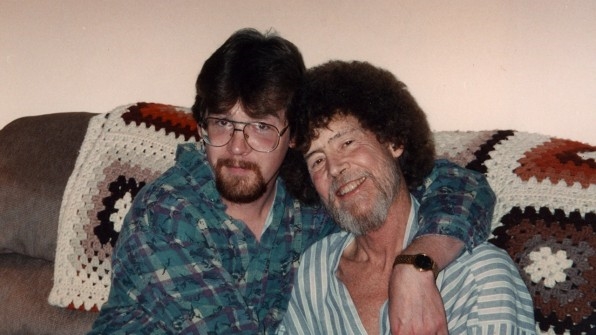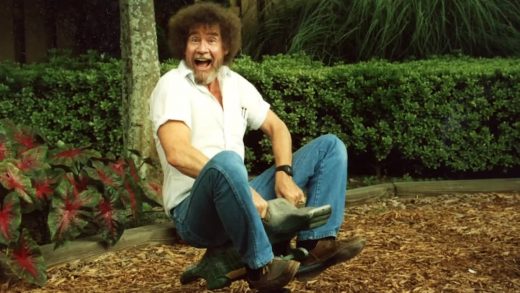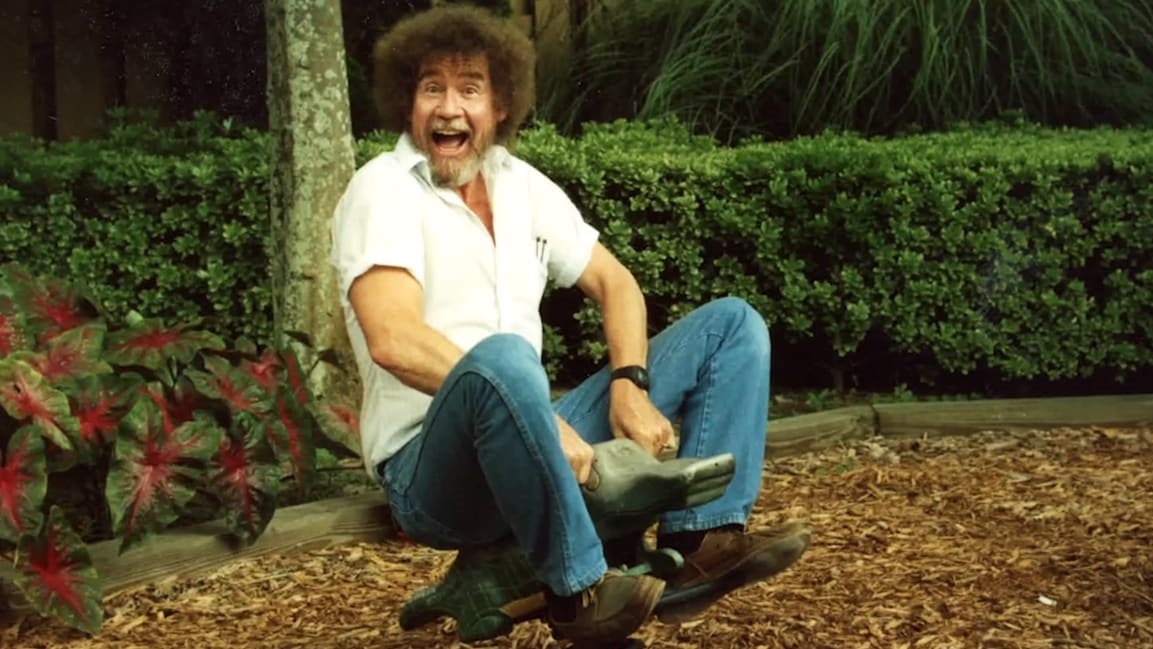Netflix’s Bob Ross documentary reveals the legal storm behind those happy little trees
It’s been almost 40 years since the phenomenon of Bob Ross first captivated viewers and amateur painters alike with his PBS series The Joy of Painting. The last episode aired in 1994, and Ross himself passed away from lymphoma only a year later at the age of 52. Yet far from fading into the ephemera of yesteryear, Ross is just as popular today as when he was part of the popular culture of the 1980s and ’90s.
In 2015, a marathon stream on Twitch pulled in more than 5.6 million viewers and introduced Ross to a new generation. More recently, Ross has become an internet celebrity during the pandemic, with viewers looking to take up painting or just sink into the oasis of the much-needed calm that Ross delivers in every episode with his happy little landscapes and dulcet tones. The painter’s enduring legacy has created an avalanche of licensed merchandise and marketing opportunities, including a posthumous campaign for Mountain Dew, of all things.
Clearly, the Ross brand has never been stronger—and it’s pretty much the opposite of what he wanted.
Ross’s name and likeness has been the subject of a contentious legal battle and an ongoing sore spot in Ross’s legacy, all of which filmmaker Joshua Rofe´ explores in his new documentary airing on Netflix, Bob Ross: Happy Accidents, Betrayal & Greed.
Produced by Melissa McCarthy and Ben Falcone, Happy Accidents, Betrayal & Greed charts Ross’s rise, as well as his fractious relationship with his business partners Annette and Walt Kowalski, who came to own virtually all things “Bob Ross” under their company Bob Ross Inc. Today, Bob Ross Inc. is run by the Kowalskis’ daughter Joan.
To say the Kowalskis have been aggressive in their ownership of Ross’s name and likeness feels like a euphemism at this point. They have initiated a number of lawsuits to assert their legal rights, such as demanding that Ross’s widow turn over Ross’s paintings, brushes, canvases, and supplies in his own home after his death.
When Rofé sought out participants for the documentary, he discovered that the Kowalskis’ prior actions and subsequent reputation created a chilling effect among the community of people who knew Ross. “When I started to do my initial outreach to just see who was close with Bob, two things were clear: One, they loved Bob and they missed him dearly. And two, they were afraid to speak about him publicly out of fear of some sort of retribution from some entity that they wouldn’t name,” Rofé says. “And it was in those conversations that I really felt this was a real story to pursue.”
More than a dozen people declined requests, but Rofé did manage to get Ross’s son Steve (who’s also a painter) as well as a few of Ross’s close friends. In Rofé’s opinion, he hopes that the voices he does—and doesn’t—have only make Happy Accidents, Betrayal & Greed have even more of an impact.

“You go from thinking you’re screwed and wondering if you could or should continue, to realizing that’s the power in this story,” he says. “This is a story that needs to be told, because most people don’t want to talk.”
For some, Happy Accidents, Betrayal & Greed may complicate their feelings toward Ross, knowing that their continued support of his legacy is, in effect, fattening the pockets of the people with whom he clearly had longstanding issues. In that way, this documentary couldn’t be more relevant today, as fans grapple with how the estates of their favorite deceased artists, from Prince and Whitney Houston to Aaliyah, are being managed—or mismanaged.
Of course, Bob Ross Inc. has a different point of view.
“Bob Ross Inc. takes strong issue with the inaccurate and heavily slanted portrayal of our company in the Netflix film, Bob Ross: Happy Accidents, Betrayal & Greed,” according to a statement email from a company representative. “Since the founding of Bob Ross Inc. in 1984, all of its equal partners—Bob and Jane Ross, and Walt and Annette Kowalski—shared the same goal: to promote and support the value of painting around the world. This was the company’s mission from its inception, through the latter days of Bob Ross’ life, and remains the company’s driving purpose after Bob’s untimely death over 25 years ago.”
That statement goes on to mention that, “While the producers of the Netflix film did contact Bob Ross Inc. twice, in late August and October 2020, each request arrived replete with a confounding lack of transparency. At no time did they pose specific questions to Bob Ross Inc. or ask for any form of rebuttal to specific assertions they had decided to include in the film. Nor was it stated that they had a distribution deal with Netflix.”
Ross’s son Steve sued Bob Ross Inc. in a bid to gain some control over how his father’s name and image were being used. However, a federal judge dismissed the lawsuit in 2019.
It’s not a happy ending, per se. But like one of Ross’s many positive affirmations from The Joy of Painting, Rofé is focusing on the silver lining.
“I think that there is a happy ending to this story because of the joy that Bob spread and continues to be spread today, regardless of the battle for his rights and likeness,” Rofé says. “People love to see him and hear him and watch him paint. Perhaps that’s the most important sentiment to leave behind, because that is ultimately what his legacy is.”
Fast Company , Read Full Story
(31)



